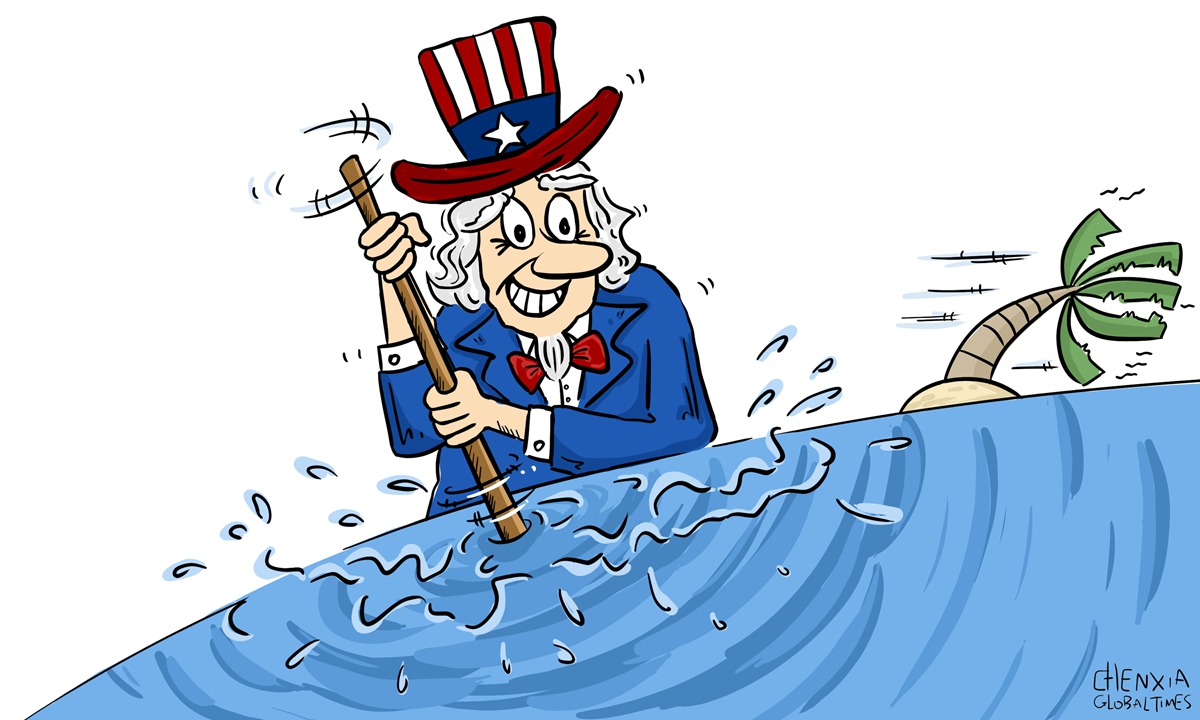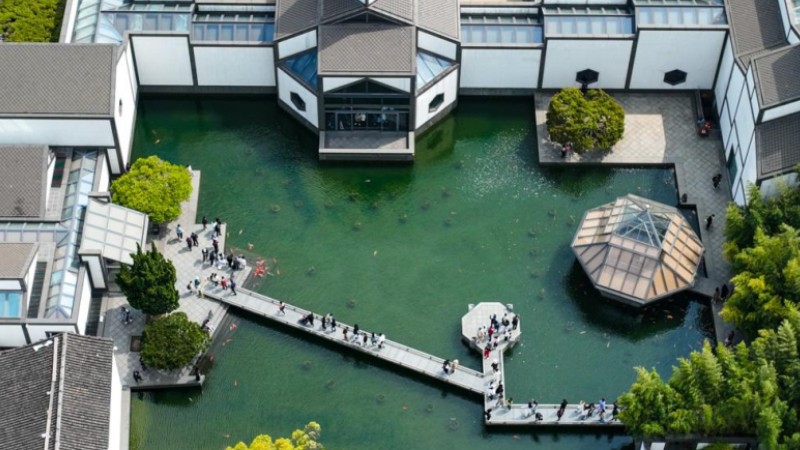Philippines makes high-profile hype over illegal S.China Sea arbitration ruling attempting to recapture the US' hegemony in region: experts

US, South China Sea Illustration: Chen Xia/GT
Hyping again the illegal and invalid South China Sea arbitration on the occasion of its seventh anniversary, the Philippines on Wednesday made a high-profile declaration that the ruling has become "a beacon whose guiding light serves all nations," backed by support from the US and its allies in an attempt to recapture the US' hegemony in the region and increase China's diplomatic costs in handling the issue, experts said.
In a statement issued on Wednesday, Philippine Foreign Affairs Secretary Enrique Manalo described the country's move as taking "the path of principle, the rule of law and the peaceful settlement of disputes," Filipino media ABS-CBN News reported.
He said he hoped it would continue to serve as an inspiration for other countries involved in similar disputes, and that the ruling "stands as a beacon whose guiding light serves all nations."
The wording of this year's anniversary is strikingly different from previous years, experts said, as it showed the Philippines is growing tougher in its stance. It has for the first time described it as a "beacon" of international law practice, trying to put itself on the moral high ground and extend the issue from a legal one to a political one.
Chinese Foreign Ministry spokesperson Wang Wenbin slammed the statement by the Philippines side at Wednesday's press briefing, reiterating that China does not accept nor recognize the South China Sea Arbitration, nor accept any claim or act based on it, as the arbitration violated the principle of state consent and exercised its jurisdiction ultra vires and rendered an award in disregard of law.
The South China Sea Arbitration has been widely questioned by the international community. Many authoritative legal experts and scholars, including those from the Philippines, have openly pointed out the illegality and errors of the ruling, the spokesperson said, noting that China's position has received extensive support and understanding from over 100 countries.
The US and its allies including Canada, Japan and the EU, have chimed in to amplify the noise made by the Philippines.
We continue to urge Beijing to comport its maritime claims with international law as reflected in the United Nations Convention on the Law of the Sea which was adopted in 1982, US State Department spokesperson Matthew Miller said in a statement.
Experts said the hype, which emerges every year around the anniversary of the ruling, is mostly just a reiteration of old arguments without theoretical foundations of international law or persuasive arguments.
They noted that the purpose of the US is to vigorously promote the formation of an international order alliance by utilizing its dominant position in the international system, with the South China Sea Arbitration as a key focal point.
The US aims to increase China's costs in safeguarding its rights in the South China Sea, including building defense facilities there, Chen Xiangmiao, director of the world navy research center at the National Institute for South China Sea Studies, told the Global Times on Wednesday.
The Chinese Embassy in Canada on Tuesday expressed strong dissatisfaction and opposition to Canada's statement on the South China Sea Arbitration, which made unfounded criticisms of China's legitimate and lawful position on maritime issues and tarnishes China's maritime law enforcement activities.
Refuting the Canadian statement which said China's coercive behavior in the East and South China Seas is dangerous, the Embassy said it is the US who frequently sends warships and aircraft to the South China Sea to flex its muscles and pressure other countries to take sides on maritime issues.
Chen warned that the US and its allies are trying to solidifying the ruling by carrying out maritime activities such as holding military drills in the South China Sea.
What's more, many expressions in the statements issued by the US and its allies have extended beyond the scope of the arbitration content, experts pointed out. For example, Canada's statement mentioned the East China Sea, Chen noted.
The US managed to expand access to four additional military bases in the Philippines in Aprilto boost its military flexibility in possible war scenarios with China. Three of the sites are in the northern Philippines, including a naval base at Cagayan's Santa Ana, which is only about 400 kilometers from China's island of Taiwan. Another is on Balabac Island near the South China Sea, according to media reports.
Photos
Related Stories
- China neither accepts nor recognizes so-called award on South China Sea arbitration: spokesperson
- Sound momentum towards greater stability in South China Sea must not be disrupted: defense minister
- Investigation begins on two ancient shipwrecks in South China Sea
- Navy conducts South China Sea combat drills
- Oilfield in South China Sea produces over 20-mln-tonnes oil equivalent in 2022
- Safeguarding peace, stability in South China Sea a common will of regional countries
- Commentary: New joint statement strong signal for peace, cooperation in South China Sea
- Chinese FM expounds on China's stance on South China Sea issue
- ‘Major incident’ in S.China Sea could only mean US-made conflict
- Chinese FM stresses peace, stability in South China Sea for regional development
Copyright © 2023 People's Daily Online. All Rights Reserved.









